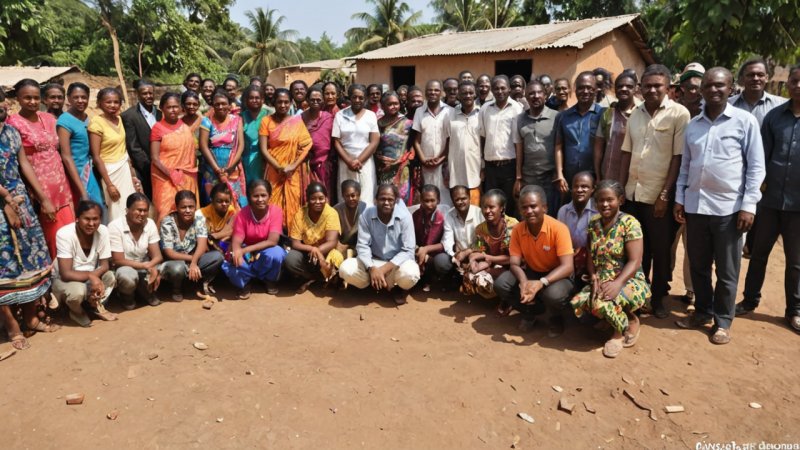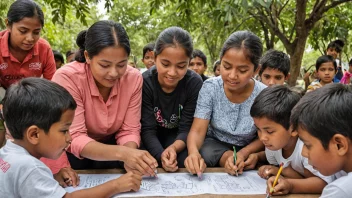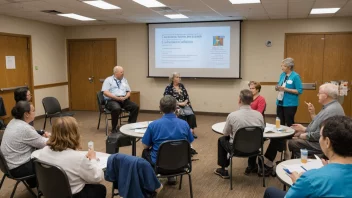Non-Governmental Organizations (NGOs) have become indispensable in advancing community development initiatives worldwide. They serve as bridges between communities and the resources they need, offering a range of support services that address critical social, economic, and environmental challenges. The role of NGOs in community development is multifaceted, encompassing advocacy, education, health services, and more.
At the heart of NGO efforts is their ability to empower community members. By involving locals in the planning and implementation of initiatives, NGOs foster ownership and accountability. This participatory approach ensures that projects are culturally relevant and responsive to the specific needs of the community. For instance, an NGO focused on improving sanitation might work with community members to design and implement hygiene education programs that resonate with local customs and practices.
Education is one of the most powerful tools for community development, and NGOs are at the forefront of delivering educational programs. Whether through formal schooling, vocational training, or literacy initiatives, NGOs help individuals acquire the knowledge and skills needed to improve their circumstances. For example, an NGO may establish a scholarship program for girls in a community where education for females is limited. By providing access to education, these organizations help break cycles of poverty and empower future generations.
In the realm of health, NGOs play a vital role in ensuring that communities have access to essential medical services. Many NGOs conduct health outreach programs that provide vaccinations, maternal and child healthcare, and health education. By collaborating with local health authorities, these organizations can effectively address health disparities and improve overall community health outcomes. For example, during a health crisis, NGOs can mobilize resources quickly to deliver critical services to affected populations.
Moreover, NGOs are crucial advocates for social justice, addressing systemic issues such as inequality and discrimination. They work to elevate the voices of marginalized groups, ensuring that their concerns are heard and addressed. Advocacy efforts may include campaigns for policy changes, awareness-raising activities, and community mobilization. Through these efforts, NGOs help create a more equitable society where all individuals have the opportunity to thrive.
Environmental sustainability is another important focus area for many NGOs. By promoting sustainable practices, such as waste reduction, renewable energy, and conservation efforts, NGOs contribute to the long-term health of both the community and the planet. For instance, some NGOs work with communities to implement sustainable farming practices that increase food security while protecting natural resources. These initiatives not only benefit the environment but also enhance the resilience of communities facing climate-related challenges.
Collaboration is key to the success of NGO initiatives. By partnering with local governments, businesses, and other organizations, NGOs can leverage additional resources and expertise. This collaborative approach maximizes the impact of their work and fosters a sense of unity within the community. For example, a partnership between an NGO and a local government to improve infrastructure can lead to better access to services and resources for community members.
In conclusion, NGOs play a crucial role in supporting community development initiatives. Through their commitment to empowerment, education, health, advocacy, and environmental sustainability, they contribute to building stronger, more resilient communities. As individuals, we can support these efforts by volunteering, spreading awareness, and advocating for the importance of community-driven development. Together, we can create a brighter future for all.
Building Stronger Communities Through NGO Initiatives
Discover how Non-Governmental Organizations (NGOs) are transforming communities through empowerment, education, health services, and advocacy.






